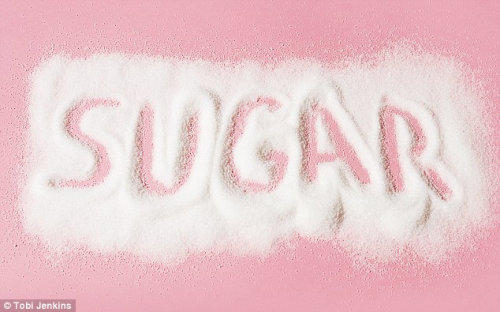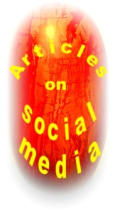
.





‘Knowledge is power’

World’s
encyclopedic
knowledge
compacted
in
your
hand





Please raise the vol to listen to the
lady airing awe @ the SINGLE author encyclopedia
For four decades we’ve been led to believe that fat is the
ultimate food enemy, but we’ve been fed a lie: the real
danger is sweet, addictive – and found in almost everyt-
hing we eat
So what do you know about eating and getting fat? If
you’re the average British person then it’s probably
something along these lines: eating too much fat will
make me obese, clog up my arteries and lead to a heart
attack, so I should follow a
low-fat diet and eat lots of
fruit and vegetables.
Wrong. While you were busy
fretting over your satur-
ated fats and dietary
cholesterols, there was a far
more
potent food nasty lurking in
your kitchen: sugar. The
amount of sugar we eat is
now being blamed not just for
the obesity epidemic but for
heart disease, type 2 diab-
etes and soaring cancer
rates. It’s not just the excess
calories we’re consuming; the
problem lies in the way
we metabolise sugar.
‘We have been sold an absolute lie about food and health,’ says Zoë Harcombe,
nutritionist and author of The Obesity Epidemic. ‘It has
been put about since the 1970s that fat was the bad guy, yet the only fats we know to be
harmful are trans fats, and these are almost
exclusively man-made. If the fat occurs naturally then it’s fine – no exceptions. Sugar, on
the other hand, when added to food, is almost
uniformly bad.’
So why was this information hidden from us? ‘Because,’ says Harcombe, ‘the commercial
food producers, who rely on sugar, represent a
huge and powerful lobby. It’s not just the obvious brands, such as fizzy drinks
manufacturers, that would suffer if sugar were removed from
our diets. Sugar is added to just about everything you buy ready-made: bread, sauces,
ready meals, drinks, tinned foods… The list is
endless.’ Even baked beans can contain two and a half teaspoons of sugar in just half a
tin. Furthermore, say campaigners, the low-fat
industry (now worth billions) is absolutely reliant on sugar because the only way to stop
low-fat food tasting like cardboard is to replace
fat with sugar.
Robert Lustig MD is a paediatric endocrinologist and childhood obesity expert at the
University of California and one of the most vocal of
the anti-sugar campaigners. Lustig’s 90-minute lecture ‘Sugar: The Bitter Truth’ (viewed
over four million times on YouTube) is uncompr-
omising in its condemnation of sugar as the cause of the obesity epidemic and its
assertion that governments (under pressure from pow
erful food producers) have kept this fact hidden.
Lustig makes the point that we have been trying the low-fat approach for 40 years and it
has failed to make us slimmer. In fact we’ve got f
atter – and sicker (six per cent of adults in the UK are now registered diabetic).
While the percentage of our daily calorie intake accounted for by fat has dropped steadily,
the incidence of obesity and related illnesses,
including type 2 diabetes, has rocketed. ‘Sugar is the problem,’ states Lustig, ‘and yet
public health officials are still advising us to follow
a low-fat diet. It’s Albert Einstein’s definition of insanity – doing the same thing over and
over again and expecting different results.’NEXT

You may also like:
Future humans to look like Pokémon characters?
Belief is useless says exChristian Franky Schaeffer
Men and women see things differently
Female Taliban Suicide Bomber Hates The Idea Of Virgins In Heaven
Empowering Book Newsletter






WOMEN’S POWER: ITS PAST, ITS PRESENT, ITS FUTURE: FEMOCRACY
WEB PAGES
OUR OFFERING
UPLOADED ITEMS
OUR EMAIL
kri200@womenspowerbook.org
QUESTION




















